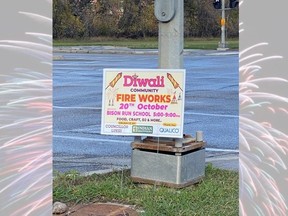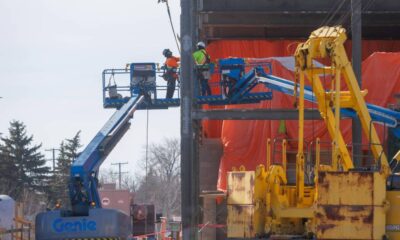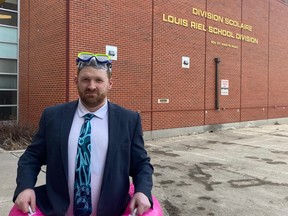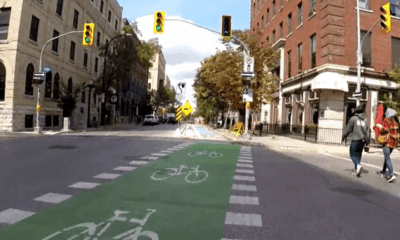Top Stories
Winnipeg City Council Advances Controversial Encampment Ban

UPDATE: The City of Winnipeg is on the brink of implementing controversial new rules targeting encampments, raising urgent questions about public safety and human rights. The city council’s community services committee has unanimously approved a motion that would prohibit encampments in various public spaces, including playgrounds, schools, and transit stops.
This motion, introduced by Coun. Cindy Gilroy and seconded by Coun. Sherri Rollins, directs increased enforcement and potential bylaw tickets during daylight hours. The proposal will soon move to the executive policy committee for a final vote, with significant implications for the city’s homeless population.
Critics, including Mayor Scott Gillingham, describe these measures as a “balanced approach” to encampments. However, experts warn that history shows this strategy fails to address the root causes of homelessness. The motion is framed around safety concerns, particularly for children and families, but it risks stigmatizing vulnerable populations, suggesting that the presence of encampments is directly linked to danger.
Winnipeg faces a critical homelessness crisis, with recent data from End Homelessness Winnipeg indicating nearly 2,500 people experiencing homelessness as of July 2024. The actual number is likely higher, highlighting the urgent need for sustainable housing solutions rather than punitive measures.
Amid this escalating crisis, the motion’s implications extend beyond public safety. It could infringe on the rights of individuals experiencing homelessness, contradicting Section 7 of Canada’s Charter of Rights and Freedoms, which guarantees life, liberty, and security. Courts across Canada have consistently ruled against penalizing individuals for sleeping outside when no adequate alternatives exist.
The timing of this motion is particularly concerning. As the province’s Your Way Home strategy begins to take shape, funding for outreach programs has been cut, undermining efforts to provide housing and care for those in need. Instead of reinforcing support systems, the city is opting for measures that have historically failed to produce positive outcomes.
The proposal does not address the systemic issues contributing to homelessness. It fosters a false dichotomy between safety for families and the rights of homeless individuals, perpetuating an “us versus them” narrative that overlooks the complexity of the crisis.
If passed, this motion risks compounding the existing problems, pushing vulnerable individuals further into the shadows and creating cycles of debt and mistrust. Advocates argue that true safety stems from stable communities, accessible housing, and robust support systems—not from bans and enforcement that further marginalize those living on the streets.
As Winnipeg city council prepares for a decisive vote, the community must confront the reality that visible encampments may disappear, but the underlying crisis will remain unresolved. The question looms large: will council choose a path that prioritizes human dignity and safety for all, or will it adhere to outdated punitive measures that fail to provide real solutions?
Stay tuned for further developments as this situation unfolds.
-

 World4 months ago
World4 months agoScientists Unearth Ancient Antarctic Ice to Unlock Climate Secrets
-

 Entertainment4 months ago
Entertainment4 months agoTrump and McCormick to Announce $70 Billion Energy Investments
-

 Lifestyle4 months ago
Lifestyle4 months agoTransLink Launches Food Truck Program to Boost Revenue in Vancouver
-

 Science4 months ago
Science4 months agoFour Astronauts Return to Earth After International Space Station Mission
-

 Technology2 months ago
Technology2 months agoApple Notes Enhances Functionality with Markdown Support in macOS 26
-

 Top Stories3 weeks ago
Top Stories3 weeks agoUrgent Update: Fatal Crash on Highway 99 Claims Life of Pitt Meadows Man
-

 Sports4 months ago
Sports4 months agoSearch Underway for Missing Hunter Amid Hokkaido Bear Emergency
-

 Politics3 months ago
Politics3 months agoUkrainian Tennis Star Elina Svitolina Faces Death Threats Online
-

 Politics4 months ago
Politics4 months agoCarney Engages First Nations Leaders at Development Law Summit
-

 Technology4 months ago
Technology4 months agoFrosthaven Launches Early Access on July 31, 2025
-

 Top Stories2 weeks ago
Top Stories2 weeks agoFamily Remembers Beverley Rowbotham 25 Years After Murder
-

 Top Stories5 days ago
Top Stories5 days agoBlake Snell’s Frustration Ignites Toronto Blue Jays Fan Fury




















